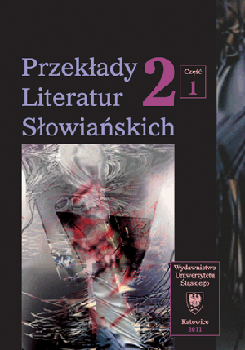O leksyce bezekwiwalentnej w tłumaczeniu. Szkic psycholingwistyczny
Nonequivalent words in translation process. A psycholinguistic view
Author(s): Mateusz WarchałSubject(s): Language and Literature Studies
Published by: Wydawnictwo Uniwersytetu Śląskiego
Keywords: Nonequivalent words; translation process; psycholinguistic
Summary/Abstract: This paper attempts to discuss the importance and validity of the concept of equivalence as a constitutive feature in translation theory. Equivalence is defined as a relation that holds between a source language (SL) and a target language (TL). When we attempt to describe and explain the relation that holds between a source language text and a target language text in translation, we necessarily come across the concept of equivalence. Textlinguistics plays a crucial and decisive role in the study of language use and obviously in the case of translation it does have a close relation with other disciplines, such as psycholinguistics. Of course, some words are nontransferable. On the other hand, text is to be understood as a complex, and, for instance, the use of a lexical entry in a text does not simply affect the lexical level but may have semantic or pragmatic implications (denotations, connotations). Therefore conditions and determinants (psychological characterization, and context) have necessarily been taken into account for fulfilling a communicative purpose in translation process. Analyzing (describing, classifying, explaining) translation equivalence is based in this paper on Croatian word formations that appear in Mediterranean: A Cultural Landscape, by Predrag Matvejević. Matvejević plunges on to subjects — the olive, sponges, fish, nets, herbs, markets, curses, winds — interwoven with a skein of intellectual discourse. This cross-cultural view requires a deep knowledge of the way Croatian phrases translate into Polish phrases.
Journal: Przekłady Literatur Słowiańskich
- Issue Year: 2/2011
- Issue No: 1
- Page Range: 138-143
- Page Count: 6
- Language: Polish

